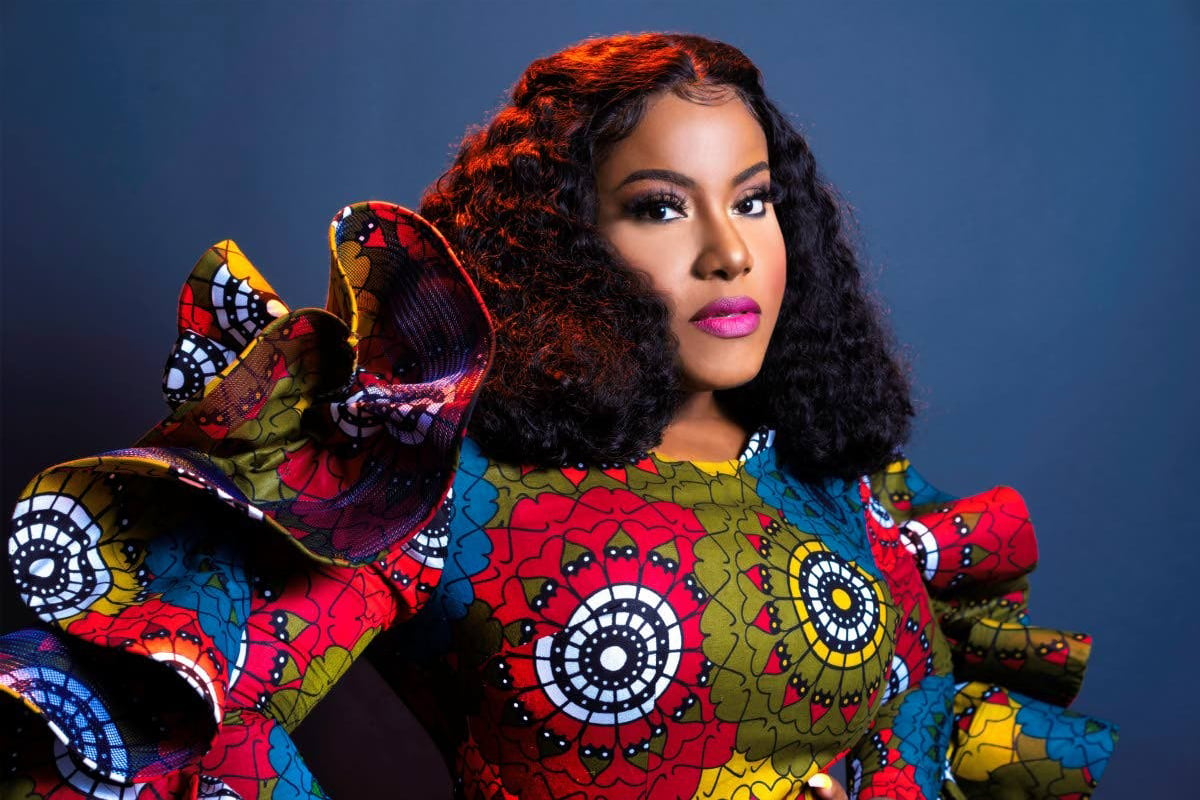Etana: ‘Pamoja’ Album Review

“Etana, me love har me love har like crazy…she have certain qualities…she can sing,” said an avid fan on the Reggae singer’s latest album with an opening skit. Pamoja, Etana’s eighth album, is laid with African world views and features, as she finds confidence in diversity.
In case anyone forgets who she is, after her gaffs and salutations to Donald Trump some years ago on a Television interview, the prodigal daughter has returned to her roots — doing what she is best at, this time showing diversity, sex appeal, mixed with black woman power.
Etana’s voice gyrates on Melanin, which goes directly for the core African market. Her ease of play on the afrobeat and reggae riddims add to the conversation about the relationship between the two genres.
Reclaiming royalty and bridging the cultural divide of the middle passage with music they sing, “Nandy, the African princess meets Etana The Strong One, Africa meets Kingston”.
Their effortless harmonies are reminiscent of Africa’s golden age of music, when bands and artist like Miriam Makeba shouted Panafrican pride in the years before Mandela was released.
Not For Sale is classic Etana, an ode to freedom in her roots-reggae loud horns comfort zone. Her comforting voice caresses the track with awareness and taste: “I am made perfect in every way natural beauty, no it’s not for sale”.
Wezi gives her competition vocally but the two bring their unique flavor for a perfectly written song.
Baby O featuring Vybz Kartel finds the Worl’ Boss out of his comfort zone as Etana promises her love. The song, released before the album, went over the heads of both their fans as it didn’t pick up much traction on the charts or in the streets but the lyrics are potent. It is not one of Vybz Kartel’s better verses or delivery.
All of Stonebwoy’s verses seem like one long song and his appearance on Proppa is no different. The best part of this song is the background vocals. The ending sounds like a nursery rhyme. Even the worst song on the album excels.
Clap is where the album gets interesting. It starts off with humming suspense music fitting a romantic movie scene on a private villa balcony at sunset. The lyrics are witty and edgy. The sexual euphemisms take the album into love and play Kama sutra territory. She embraces Rihanna style risqué femininity, “clap clap clap like a Diwali riddim”. Oh Etana!
Walking Away is not the best song to follow this track. Repeat Clap three times before proceeding to the rest of the album. It’s the album’s best song. Fly after Clap and then Walking Away would create a better flow of feeling and it sounds better in that order.
On Fly, Fiji, the singer, not the Island, is as soulful as John Legend but in his own way. His falsettos create goosebump moments. This is what modern reggae feels like.
The whispers on The One highlights Etana’s musicality as she finds range vocally with whispers. I remember seeing Etana perform at Sting during a power cut with no mic and she kept the attention of the massive crowd. With such musical dexterity her voice can be applied to other genres than reggae if she wanted to.
She asserts this fact on the next song Turn Up Di Sound: “All I need is a bass and a mic”. She can go fast, slow, high, low and in between. Damian Marley is in his lyrical bag, “increase the decibel, keep me feeling very well, Reggae music and hustling run parallel”. Another goosebump moment comes when Etana belts out “Reeeegggaaee”. This should have been the first promotional single for the album. Both Etana and Gong paint pictures with words.
The self-titled track takes Etana back to Africa. This song is what I call a “stadium track”. The chants and echoes will best resonate to large audiences at a football match half time show or at a grand gala “Pamoja”.
“Come together now Oh Africa” has been the plight of reggae and Etana interprets this message with modern grooves.
While many Jamaican artists are keen on crossing over in the North American markets, Etana looks to the East as she sings in Swahili. Malaika is a song written by Tanzanian musician Adam Salim in 1945 and made famous in the western world by Miriam Makeba. She is showing off at this point. Malaika, translates as:
Malaika, nakupenda Malaika
Angel, I love you angel
Malaika, nakupenda Malaika
Angel, I love you angel
Nami nifanyeje, kijana mwenzio
and I, what should I do, your young friend
Etana raises the bar with this number 1 song as she embraces the African vernacular and context all while being originally reggae. Who needs a Grammy award when you can sing reggae in Swahili?
I’m not clear on the choice to rename Not For Sale as Natural Beauty. It could be one song with two featured artists instead of two separate songs. Not For Sale sounds better.
The same goes for Jamrock Vibez where Etana collaborates with Alborosie. Pamoja didn’t need two repeated tracks. Turn Up The Sound featuring Damian Marley was already made perfect.
Other than those two upungufu wa kazi, the album is half point away from a classic. It gets a 4.5 out of 5. Etana is a cut above the rest and in a lane of her own. Pamoja which means “together” in Swahili adds to her range and arsenal of classic albums. Her next mission should be to conquer other musical genres.
